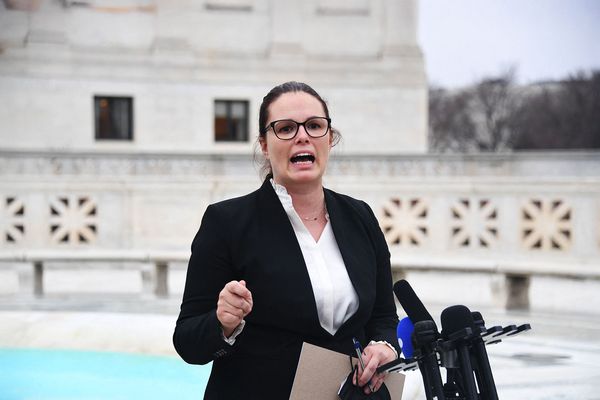
UK government borrowing costs have risen to the highest levels since the financial market chaos triggered by Kwasi Kwarteng’s mini-budget in September, despite renewed efforts by the Bank of England to smooth over the turmoil.
The yield – or interest rate – on 10-year UK government bonds rose above 4.5% in afternoon trading on Monday, returning to the levels last seen two weeks ago, before the central bank intervened after the chancellor’s poorly received tax and spending statement.
The fresh rise in borrowing costs came despite an attempt by the Bank earlier on Monday to quell market jitters before the expiry of its emergency bond market intervention at the end of this week.
Threadneedle Street was forced to step in late last month amid a dramatic sell-off for long-dated government debt, with a promise to buy up to £65bn in UK government bonds in a scheme running until 14 October to ease market turmoil.
In the final week of its operations, the Bank said it would increase the daily maximum value of the bonds it could buy to £10bn a day from a current level of £5bn to ensure there was “sufficient capacity in the market” before the end of the scheme.
The central bank has so far bought only about £5bn in gilts in the first eight days of the scheme, significantly below a maximum limit of £40bn. However, it signalled it was “prepared to deploy this unused capacity” over the coming days to help ease the pressure in bond markets.
After the announcement on Monday, the Bank bought £853m of long-dated bonds – its most since 30 September but far fewer than the £10bn daily limit.
The yield on 30-year government bonds rose above 4.7%, edging closer towards the 5% peak seen the day before the Bank’s initial intervention on 28 September. The UK’s long-term borrowing costs have risen sharply from a month ago, when yields were below 3.5%, with most of the increase seen after Kwarteng’s mini-budget on 23 September.
Highlighting the risks to the UK economy, the credit rating agency Fitch said Britain would probably face a deeper recession “following extreme volatility” in UK financial markets and the prospect of sharply higher interest rates.
It forecast GDP to decline by 1% next year, compared with a previous estimate of -0.2% made in September. In a statement undermining the Liz Truss government’s promise to use tax cuts to boost economic growth, it warned: “Rising funding costs, tighter financing conditions, including for mortgage borrowers, and increased uncertainty will outweigh the impact of looser fiscal policy in 2023.”
It comes after yields – which rise as bond prices fall – soared by more than one percentage point in the wake of Kwarteng’s mini-budget.
Government bond yields across advanced economies have risen in recent weeks amid fears over sky-high inflation and rising interest rates from the US Federal Reserve. However, City economists have pointed the finger at the chancellor’s unfunded tax cuts for exacerbating the bond market sell-off in Britain.
The Bank’s deputy governor for financial stability, Jon Cunliffe, appeared to suggest last week that the biggest movements in UK markets came after Kwarteng’s unfunded tax promises were made. The chancellor on Monday announced he was bringing forward a statement on his debt-cutting plans to 31 October from 23 November. The Halloween statement will be published alongside new forecasts from the Office for Budget Responsibility.
As a result of the post mini-budget meltdown, pensions funds invested in liability-driven investment (LDI) schemes faced pressure as the value of the bonds they had pledged for their hedging activities collapsed.
The funds faced rolling “margin calls” to raise the amount of collateral – assets pledged as security to back up a financial contract – which in turn led them to sell more bonds to cover the cash demands, in a self-reinforcing downward spiral.
The Bank said in addition to increasing the size of the bond-buying programme, it would launch a facility to help commercial banks to support pension funds struggling to find buyers and sellers for assets.
Beyond the end of this week’s operations, it said it would work with the UK authorities and regulators to ensure the LDI industry operates on a more resilient basis in future.







